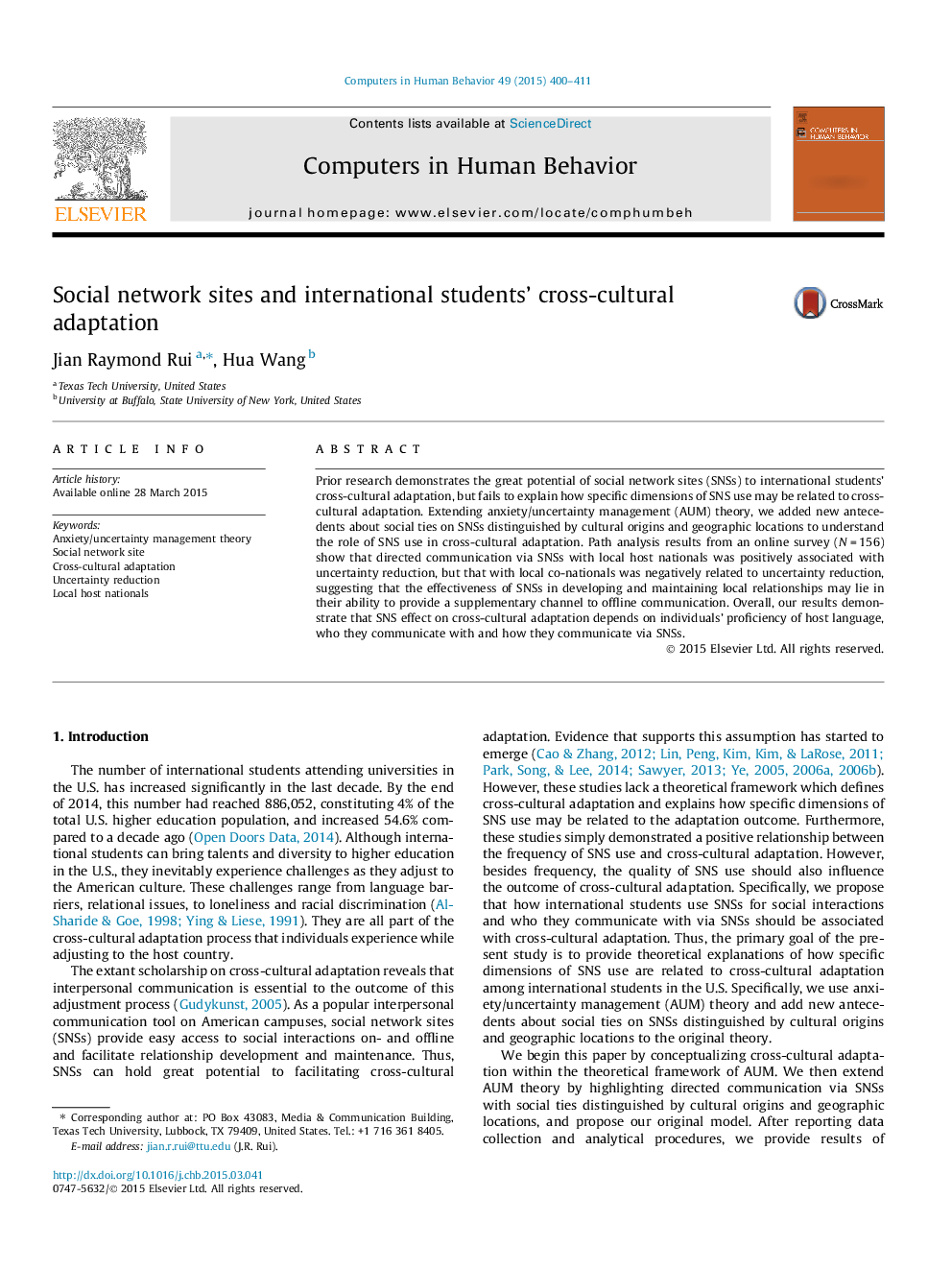| Article ID | Journal | Published Year | Pages | File Type |
|---|---|---|---|---|
| 350339 | Computers in Human Behavior | 2015 | 12 Pages |
•Directed communication with local host nationals reduced uncertainty.•Directed communication with local co-nationals increased uncertainty.•Results suggest SNSs supplement offline communication.•Results extend anxiety/uncertainty management theory.•SNS effect depends on how and with whom to communicate.
Prior research demonstrates the great potential of social network sites (SNSs) to international students’ cross-cultural adaptation, but fails to explain how specific dimensions of SNS use may be related to cross-cultural adaptation. Extending anxiety/uncertainty management (AUM) theory, we added new antecedents about social ties on SNSs distinguished by cultural origins and geographic locations to understand the role of SNS use in cross-cultural adaptation. Path analysis results from an online survey (N = 156) show that directed communication via SNSs with local host nationals was positively associated with uncertainty reduction, but that with local co-nationals was negatively related to uncertainty reduction, suggesting that the effectiveness of SNSs in developing and maintaining local relationships may lie in their ability to provide a supplementary channel to offline communication. Overall, our results demonstrate that SNS effect on cross-cultural adaptation depends on individuals’ proficiency of host language, who they communicate with and how they communicate via SNSs.
